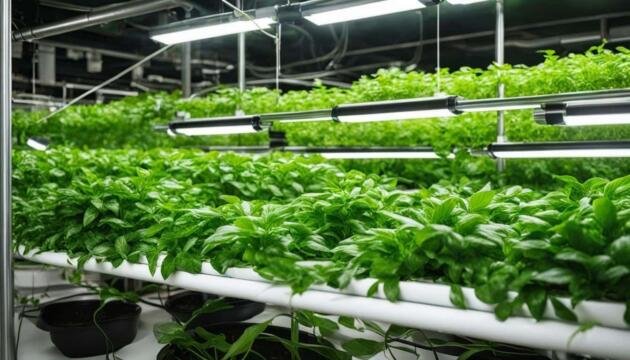Sustainable Living on a Budget: Affordable Eco-friendly Choices

Discover how sustainable living on a budget is achievable by making affordable, eco-friendly choices. Sustainable living is often thought to be expensive and unattainable for those on a budget, but this is a misconception. Making environmentally friendly choices doesn’t have to be costly and can actually save money in the long run.
One way to start is by reducing consumption of toxic products and opting for earth-derived alternatives. For example, instead of using plastic produce bags, place fruits and vegetables directly in the cart or bring reusable cloth bags. Making coffee at home rather than buying it from a coffee shop can save over $20 a week. Avoiding single-use plastic items like toothbrushes and opting for bamboo toothbrushes is another simple yet impactful change.
Another way to save money and make eco-friendly choices is by buying in bulk, using reusable containers, or joining a CSA for fresh produce straight from local farms. Shopping at farmers markets near closing time can also lead to discounted prices. Bringing your own reusable bags to the grocery store not only saves money but also reduces plastic waste.
Making your own cleaning supplies using vinegar, water, and essential oils is a cost-effective and eco-friendly option. Reusing items you already have instead of buying new, such as using old jars for storage instead of mason jars, can also contribute to sustainable living on a budget.
Investing in reusable straws and low-flow shower fixtures are other ways to reduce waste and save money. Washing clothes on cold water settings and using eco-friendly detergents can also save energy and reduce carbon emissions.
By making small changes, it is possible to live sustainably on a budget and contribute to a healthier planet.
- Making environmentally friendly choices doesn’t have to be costly and can actually save money in the long run.
- Reduce consumption of toxic products and opt for earth-derived alternatives.
- Buy in bulk using reusable containers, or join a CSA for fresh produce.
- Bring your own reusable bags to the grocery store to save money and reduce plastic waste.
- Make your own cleaning supplies using cost-effective and eco-friendly ingredients.
Sustainable Living on a Budget: Myths vs. Reality
Let’s debunk the myths surrounding sustainable living on a budget and explore the reality of how you can adopt an affordable, eco-friendly lifestyle. Sustainable living is often perceived as expensive and impractical, but the truth is quite the opposite. By making conscious choices and small changes in our daily lives, we can embrace sustainability while keeping our finances intact.
One of the misconceptions about sustainable living is that it requires purchasing expensive eco-friendly products. However, there are numerous affordable alternatives available. For example, instead of using plastic produce bags at the grocery store, simply place your fruits and vegetables directly in the cart or bring reusable cloth bags. This simple switch not only reduces waste but also saves money in the long run.

Another myth is that sustainable living eliminates convenience or enjoyment. On the contrary, making coffee at home instead of buying it from a coffee shop can save you over $20 a week. By investing in a reusable coffee cup, you can enjoy your favorite brew guilt-free while reducing single-use cup waste. It’s a win-win situation for both your wallet and the environment.
Sustainable Living Tips on a Budget:
- Avoid single-use plastic items like toothbrushes. Opt for affordable and eco-friendly bamboo toothbrushes.
- Buy in bulk using reusable containers or join a Community Supported Agriculture (CSA) program for fresh produce from local farms.
- Shop at farmers markets near closing time for discounted prices on fresh, locally grown food.
- Bring your own reusable bags to the grocery store to save money and reduce plastic waste.
- Make your own cleaning supplies using cost-effective ingredients like vinegar, water, and essential oils.
- Repurpose and reuse items you already have instead of buying new. Get creative with old jars for storage and repurposing.
- Invest in reusable straws and low-flow shower fixtures to reduce waste and save money on water bills.
- Wash clothes on cold water settings and use eco-friendly detergents to save energy and reduce carbon emissions.
By incorporating these simple, budget-friendly tips into your routine, you can make a positive impact on the environment while keeping your finances in check. Sustainable living is accessible to everyone, regardless of their budget, and it’s time to embrace the reality that eco-friendly choices can be both affordable and rewarding.
Simple Sustainable Living Tips for Budget-conscious Individuals
Explore these simple sustainable living tips that will help you embrace an eco-conscious lifestyle while staying within your budget. Making environmentally friendly choices doesn’t have to be costly, and you can even save money in the long run.
One of the easiest ways to start living sustainably on a budget is by reducing consumption of toxic products and opting for earth-derived alternatives. For example, instead of using plastic produce bags, place fruits and vegetables directly in the cart or bring reusable cloth bags. Not only will this save you money on plastic bags, but it also reduces plastic waste that ends up in landfills and our oceans.
Another simple yet impactful change you can make is to bring your own coffee from home instead of buying it from a coffee shop. This small adjustment can save you over $20 a week. Additionally, avoiding single-use plastic items like toothbrushes and opting for bamboo toothbrushes is not only better for the environment but also more cost-effective in the long run.
| Hack | Budget-Friendly Sustainability |
|---|---|
| Buy in bulk | Using reusable containers and joining a CSA for fresh produce straight from local farms |
| Shop at farmers markets | Near closing time for discounted prices |
| Bring your own reusable bags | Reduce plastic waste and save money |
| Make your own cleaning supplies | Using vinegar, water, and essential oils |
| Reuse items | Instead of buying new, such as using old jars for storage instead of mason jars |
| Invest in reusable straws and low-flow shower fixtures | Reduce waste and save money |
| Wash clothes on cold water settings | Use eco-friendly detergents to save energy and reduce carbon emissions |
By implementing these sustainable living tips, you can make a positive impact on the environment while still adhering to a budget. Every small change adds up, and together, we can contribute to a healthier planet for future generations.
Saving Money and the Environment: Reduce, Reuse, Rethink
Discover how adopting a mindset of reduce, reuse, and rethink can help you save money and live a more sustainable life. Sustainable living is often thought to be expensive and unattainable for those on a budget, but this is a misconception. Making environmentally friendly choices doesn’t have to be costly and can actually save money in the long run.
One way to start is by reducing consumption of toxic products and opting for earth-derived alternatives. For example, instead of using plastic produce bags, place fruits and vegetables directly in the cart or bring reusable cloth bags. Making coffee at home rather than buying it from a coffee shop can save over $20 a week. Avoiding single-use plastic items like toothbrushes and opting for bamboo toothbrushes is another simple yet impactful change.
Another way to save money and make eco-friendly choices is by buying in bulk using reusable containers or joining a CSA for fresh produce straight from local farms. Shopping at farmers markets near closing time can also lead to discounted prices. Bringing your own reusable bags to the grocery store not only saves money but also reduces plastic waste. Making your own cleaning supplies using vinegar, water, and essential oils is a cost-effective and eco-friendly option. Reusing items you already have instead of buying new, such as using old jars for storage instead of mason jars, can also contribute to sustainable living on a budget.
Investing in reusable straws and low-flow shower fixtures are other ways to reduce waste and save money. Washing clothes on cold water settings and using eco-friendly detergents can also save energy and reduce carbon emissions. By making small changes, it is possible to live sustainably on a budget and contribute to a healthier planet.

| Benefits of Sustainable Living on a Budget | Actions for Low-Cost Eco-conscious Living |
|---|---|
| Save money in the long run | Reduce consumption of toxic products |
| Contribute to a healthier planet | Opt for earth-derived alternatives |
| Support local farms | Buy in bulk with reusable containers |
| Reduce plastic waste | Make your own cleaning supplies |
| Save energy and reduce carbon emissions | Reuse items instead of buying new |
Sustainable Shopping: Buying in Bulk and Supporting Local Farms
Learn how sustainable shopping practices like buying in bulk and supporting local farms can be affordable ways to embrace eco-conscious living.
When it comes to sustainable living on a budget, smart shopping choices can make a big difference. One option to consider is buying in bulk using reusable containers. Not only does this reduce packaging waste, but it can also save you money in the long run. By purchasing items in larger quantities, you can often take advantage of lower unit prices. This approach works well for pantry staples like rice, beans, and grains, as well as personal care products like shampoo and soap.
Supporting local farms through Community Supported Agriculture (CSA) programs is another way to make sustainable choices while staying within your budget. CSAs allow you to receive a weekly or monthly share of fresh, seasonal produce directly from local farmers. This not only supports your local community but also reduces the carbon footprint associated with food transportation. Many CSAs offer different share sizes and payment plans to accommodate various budgets.
| Benefits of Buying in Bulk: |
|---|
| Reduced packaging waste |
| Potential cost savings |
| Convenience of having supplies on hand |
By combining buying in bulk with supporting local farms, you can maximize your impact on sustainable living while minimizing your expenses. Not only will you be reducing waste and supporting the environment, but you’ll also have access to fresh, nutritious food at an affordable price.
Remember, every small step towards sustainable living counts. Whether it’s opting for reusable bags, buying in bulk, or supporting local farmers, each choice you make brings us closer to a healthier planet for future generations.
Discover money-saving hacks for your trips to the grocery store and farmers markets that promote sustainable living on a budget. Sustainable living is all about making conscious choices that are good for the environment and your wallet. By implementing these simple tips and tricks, you can enjoy the benefits of affordable green living while reducing your carbon footprint.
One effective way to save money and support local farmers is by buying in bulk using reusable containers. This not only reduces packaging waste but also allows you to purchase larger quantities at a lower cost per unit. Additionally, consider joining a Community Supported Agriculture (CSA) program, where you can receive a weekly share of fresh produce straight from local farms. CSAs often provide an affordable way to enjoy seasonal fruits and vegetables while directly supporting sustainable agriculture.

When shopping at the grocery store, be sure to bring your own reusable bags. This not only saves you money on plastic or paper bags but also helps reduce plastic waste. Some stores even offer discounts or incentives for bringing your own bags. Another money-saving tip is to visit farmers markets near closing time. Farmers often discount their produce to sell the remaining inventory, allowing you to snag great deals and support local businesses at the same time.
Money-saving Hacks at the Grocery Store and Farmers Markets:
- Buy in bulk using reusable containers
- Join a Community Supported Agriculture (CSA) program
- Bring your own reusable bags to the grocery store
- Visit farmers markets near closing time for discounted produce
By incorporating these sustainable living hacks into your routine, you can make a positive impact on the environment while saving money. Remember, every small change counts when it comes to living a more eco-friendly and budget-conscious lifestyle.
| Hack | Benefits |
|---|---|
| Buy in bulk using reusable containers | – Reduces packaging waste – Lower cost per unit |
| Join a Community Supported Agriculture (CSA) program | – Supports local farmers – Affordable access to fresh produce |
| Bring your own reusable bags to the grocery store | – Saves money on bags – Reduces plastic waste |
| Visit farmers markets near closing time | – Opportunities for discounted produce – Supports local businesses |
DIY Cleaning Supplies: Affordable and Eco-friendly
Learn how to create your own eco-friendly and budget-friendly cleaning supplies with these DIY tips. Making your own cleaning products not only helps reduce plastic waste and harmful chemicals in your home but also saves you money. With a few simple ingredients and some basic household items, you can create effective and environmentally friendly cleaning solutions.
One of the easiest DIY cleaning supplies to make is an all-purpose cleaner. Mix equal parts white vinegar and water in a spray bottle, and you have a powerful cleaner that can be used on countertops, appliances, and even windows. To add a fresh scent, you can also add a few drops of your favorite essential oil. This homemade cleaner is not only cost-effective but also safe for your health and the environment.
Another essential cleaning product that you can easily make at home is laundry detergent. By combining washing soda, borax, and grated bar soap, you can create a DIY laundry detergent that is free from harsh chemicals found in many commercial detergents. Not only is this homemade detergent gentle on your clothes and skin, but it also saves you money in the long run.
| DIY Cleaning Recipe | Ingredients | Instructions |
|---|---|---|
| All-Purpose Cleaner | Equal parts white vinegar and water Essential oils (optional) | 1. Mix vinegar and water in a spray bottle. 2. Add a few drops of essential oil for scent. 3. Use as needed on various surfaces. |
| DIY Laundry Detergent | 1 cup washing soda 1 cup borax 1 grated bar soap | 1. Mix washing soda, borax, and grated soap. 2. Use 2 tablespoons per load of laundry. |
By opting for these DIY cleaning supplies, you not only reduce your environmental impact but also save money on expensive store-bought products. Give it a try and see how easy and cost-effective it can be to maintain a clean and eco-friendly home!

Explore creative ways to repurpose and reuse items in your home, making sustainable living accessible on any budget. Repurposing and reusing not only reduces waste but also saves money and contributes to a more eco-friendly lifestyle.
One way to repurpose items is by giving them a new life through DIY projects. For example, old mason jars can be transformed into stylish storage containers for pantry staples like rice and pasta. Simply remove the labels, clean the jars thoroughly, and apply a fresh coat of paint for a personalized touch. This not only helps to organize your kitchen but also eliminates the need to purchase new storage containers.
Another creative way to repurpose items is by turning old clothing into new fashion pieces. Transforming a worn-out shirt into a trendy tote bag or upcycling jeans into stylish cutoff shorts not only extends the lifespan of these items but also saves money on buying new accessories. Get inspired by online tutorials and let your creativity shine as you give new life to old garments.
| Benefits of Repurposing and Reusing |
|---|
| Environmental Impact: By repurposing and reusing items, you reduce the amount of waste that ends up in landfills, helping to conserve natural resources and reduce greenhouse gas emissions. |
| Savings on Purchases: Instead of buying new items, repurposing allows you to save money on unnecessary purchases. This can free up funds for other essential or enjoyable items. |
| Creative Expression: Repurposing and reusing items provide an opportunity for creativity and self-expression. It allows you to showcase your unique style and personality through upcycled creations. |
Repurposing and reusing items not only benefits the environment but also provides an opportunity for creative expression and significant cost savings. So don’t throw away those old items just yet – give them a new purpose and join the sustainable living movement!
By embracing repurposing and reusing, you can make a positive impact on the environment while also saving money. Plus, it’s a fun and creative way to add personal touches to your living space. So before you toss anything in the trash, consider how it could be repurposed or reused. You’ll be amazed at what you can create while also reducing waste and living sustainably on a budget.

Save Money, Save Resources: Energy-efficient Habits
Discover energy-efficient habits that contribute to a greener planet and help you save money on your monthly bills. Making small changes to your daily routines can have a significant impact on both the environment and your wallet. By adopting these low-cost eco-conscious practices, you can reduce energy consumption and create a more sustainable lifestyle.
One of the easiest ways to save energy and money is by adjusting your thermostat settings. During the colder months, lower your heating temperature by a few degrees and layer up with cozy clothing or blankets. In the summer, raise your air conditioning temperature and use fans to circulate cool air. This simple adjustment can lead to significant savings on your energy bills.
Another energy-efficient habit is to unplug electronic devices when they are not in use. Even when turned off, these devices can still consume energy in standby mode. By unplugging them or using power strips with an on/off switch, you can prevent this “phantom” energy usage. This practice not only reduces your carbon footprint but also cuts down on your electricity costs.
| Energy-Efficient Habit | Benefits |
|---|---|
| Switch to LED light bulbs | – Lower energy consumption – Longer lifespan – Cost-effective in the long run |
| Use natural light whenever possible | – Reduces reliance on artificial lighting – Saves on electricity bills |
| Install low-flow showerheads and faucets | – Decreases water usage – Decreases water heating costs |
| Insulate windows and doors | – Prevents heat loss in the winter – Reduces the need for excessive heating |
Switching to energy-efficient appliances and electronics can also make a significant difference. Look for products with the ENERGY STAR label, which indicates that they meet strict energy efficiency guidelines set by the Environmental Protection Agency. These appliances consume less energy and can help you save money in the long run. Additionally, using energy-efficient settings on your washing machine, dishwasher, and other household appliances can further reduce your energy consumption.
By incorporating these energy-saving habits into your daily life, you not only contribute to a greener planet but also enjoy the financial benefits of reduced utility bills. Remember, small changes can add up to significant savings over time, making sustainable living on a budget more attainable than ever. Let’s embrace these energy-efficient habits and create a more sustainable future for ourselves and the generations to come.

In conclusion, living sustainably on a budget is not only achievable but also beneficial for both the environment and your wallet. Contrary to popular belief, sustainable living doesn’t have to be expensive. By making small changes to your everyday habits, you can reduce your carbon footprint, save money, and contribute to a healthier planet.
One of the easiest ways to start living sustainably on a budget is by reducing consumption of toxic and single-use products. Instead of using plastic produce bags, opt for placing fruits and vegetables directly in your shopping cart or bring reusable cloth bags. Making your own coffee at home can save over $20 a week compared to buying it from a coffee shop.
Another simple yet impactful change is to switch from plastic toothbrushes to bamboo toothbrushes. Not only are bamboo toothbrushes eco-friendly, but they also come at an affordable price. Buying in bulk using reusable containers or joining a Community Supported Agriculture (CSA) program can also save money while supporting local farmers.
When grocery shopping, bring your own reusable bags to further reduce plastic waste and save money. Making your own cleaning supplies using vinegar, water, and essential oils is a cost-effective and eco-friendly option. Reusing items you already have, such as old jars for storage, instead of buying new can also contribute to sustainable living on a budget.
Lastly, make energy-saving habits part of your sustainable living journey. Invest in reusable straws, low-flow shower fixtures, and wash clothes on cold water settings. Using eco-friendly detergents can also save energy and further reduce your carbon emissions. By taking these small steps, you can live sustainably on a budget and be a part of creating a better future for our planet.
FAQ
Is sustainable living expensive?
No, sustainable living doesn’t have to be expensive. In fact, making eco-friendly choices can actually save money in the long run.
How can I start living sustainably on a budget?
You can start by reducing consumption of toxic products and opting for earth-derived alternatives. For example, using reusable cloth bags instead of plastic produce bags and making coffee at home instead of buying it from a coffee shop can save you money.
Can I save money by buying in bulk?
Yes, buying in bulk using reusable containers or joining a CSA (Community Supported Agriculture) for fresh produce can be a cost-effective way to shop sustainably.
Are there ways to save money at farmers markets?
Yes, shopping at farmers markets near closing time can often lead to discounted prices. Additionally, bringing your own reusable bags to the market can save you money and reduce plastic waste.
How can I make eco-friendly cleaning supplies on a budget?
You can make your own cleaning supplies using vinegar, water, and essential oils. This is a cost-effective and eco-friendly option compared to buying commercial cleaning products.
How can I repurpose items to save money and be sustainable?
You can repurpose and reuse items you already have instead of buying new ones. For example, using old jars for storage instead of purchasing mason jars can contribute to sustainable living on a budget.
Are there energy-saving habits that can also save money?
Yes, washing clothes on cold water settings and using eco-friendly detergents can save energy and reduce carbon emissions. Additionally, using low-flow shower fixtures and investing in energy-efficient appliances can help save money on utility bills.
Can I live sustainably on a budget?
Absolutely! By making small changes and adopting budget-friendly sustainable practices, it is possible to live an eco-friendly lifestyle while saving money and contributing to a healthier planet.



